The plight of Mumbai’s fisherfolk has largely gone unnoticed. Haima Desshpande discovers only 10% of the traditional fishing families are still in business.
Farmers’ suicides have hogged the national headlines for a long time now. But the plight of Mumbai’s fisherfolk has gone unnoticed. The culprit here too is development. Effluents from factories, indiscriminate fishing, increasing reclamation of land for development projects and ONGC’s oil rigs share the blame for this loss of marine wealth. Haima Desshpande discovers that only 10 per cent of the traditional fishing families are still in business
A severe shortage of fish has hit the Mumbai market. The dwindling supply has resulted in spiralling prices of the produce and a reduction in buyers. Unable to meet the rising cost of fishing along with the short supply, a vast majority of the five lakh fishermen in the various fishing villages in and around Mumbai and the estimated 10 lakh spread across the Maharashtra coastline are heavily debt-ridden.
Suicides amongst these debt-ridden fishermen are also increasing as they are unable to make ends meet and repay their loans, revealed Vithal Tare, member of the Mumbai Zilla Machimar Sangh to DNA. Excessive dumping of pollutants into the sea, continuing reclamation of land from the sea and indiscriminate fishing by high-speed trawlers owned by large fishing conglomerates have reduced the catch from the seas.
Fishermen have to now spend longer days at the sea and travel further into the high seas in search of quality produce. More often they are unable to even net catch worth even Rs10,000 in the city’s markets. March, April and May are considered to the bumper season for fishing and three-day trip into the seas would fetch them catch worth Rs50,000 to Rs1 lakh. But since the last five years, there was no bumper catch to reap from the seas, said Tare.
Mackerel, Bombay duck, tiger prawns and pomfret - once commonly available only five kilometres into the sea along the Mumbai coastline — have vanished. “We have to travel at least 40 to 50 nautical miles into the seas to catch them now. Besides, there is no guarantee that even after we travel so much into the deep seas we will net them. Two varieties of common fish — Jawla and Karandi — which used to be available in large quantities have also reduced considerably,” he said.
Hit hard below the belt, a mere 10 per cent of the traditional fishing families are now in the trade. At least 70 per cent of the fishing boats in the fishing villages are not operational.
Fishing villages are located at Palghar, Satpati, Arnala, Vasai, Uttan, Gorai, Alibag, Ratnagiri, Madh, Bhaati, Manori, Versova, Danda, Worli, Cuffe Parade, Sassoon Docks and Bhaucha Dhakka. The oil rigs of the Oil and Natural Gas Corporation (ONGC) are covering the main fishing areas resulting in a dearth of fish, stated Haresh Laxman Bhanji, Chairman of the Visava Machimar Vividh Karyakari Sahakari Society.
The construction of the Bandra-Worli sea link has adversely affected the lives of the local fishing communities, disclosed members of the Mahikavati Mahim Sarvoday Sahakar Society Limited. Due to the location of the project and the extent of reclamation of land from the sea, fishermen complain that they have been denied access to the sea. They have to walk almost 500 square yard to reach the sea and there is no place to park their boats. “Before this project a family made Rs1,500 to Rs2,000 a day. Now even Rs500 a day is too much. Earlier we could get lobsters, crabs and prawns a little into the sea, now due to the pollution they have all disappeared,” added Tare.
Effluents from factories in Goregaon, Malad and Madh have affected the supply of prawns, crabs, Taam (red fish), Bhoi and Gol Mase from the Versova-Madh creek.
Due to the severe losses and meagre returns, the new generation is moving away from fishing. The State Government’s diktat of compulsory schooling for children and the consequences of following the same have resulted in the birth of an educated class of fishermen. They are depending less on the produce from the sea and more on their pay packets, said 38-year-old Pravin Bhave, a Commerce graduate who works in the stores department of a leading airlines company. According to him it is difficult to depend on the business today as they are all steeped in debts and need other means of income to repay the loans and subsist.
“A boat is like a factory. At least 400 people depend on the catch from one boat,” said Rajshri Bhanji, a fishmonger and activist from Versova. All of them are seeking the State’s intervention and procurement of their produce by the State on the lines of sugarcane and cotton. “If the government buys our fish, this trade may last for another 20 years, otherwise in the next five years there will be a drastic reduction in the number of fishermen left in the trade,” cautioned Haresh Bhanji. His son Vishal, 25, has completed MSc with Fisheries and Oceanography as specialisation. He is looking for opportunities and does not want to continue in his family trade.
Given the present situation, it will just be a matter of time before the trade entirely collapses, said Tare.
![submenu-img]() Big update on Pakistan's first-ever Moon mission and it has this China connection...
Big update on Pakistan's first-ever Moon mission and it has this China connection...![submenu-img]() 2024 Maruti Suzuki Swift officially teased ahead of launch, bookings open at price of Rs…
2024 Maruti Suzuki Swift officially teased ahead of launch, bookings open at price of Rs…![submenu-img]() 'Kyun bhai kyun?': Sheezan Khan slams actors in Sanjay Leela Bhansali's Heeramandi, says 'nobody could...'
'Kyun bhai kyun?': Sheezan Khan slams actors in Sanjay Leela Bhansali's Heeramandi, says 'nobody could...'![submenu-img]() Meet Jai Anmol, his father had net worth of over Rs 183000 crore, he is Mukesh Ambani’s…
Meet Jai Anmol, his father had net worth of over Rs 183000 crore, he is Mukesh Ambani’s…![submenu-img]() Shooting victim in California not gangster Goldy Brar, accused of Sidhu Moosewala’s murder, confirm US police
Shooting victim in California not gangster Goldy Brar, accused of Sidhu Moosewala’s murder, confirm US police![submenu-img]() DNA Verified: Is CAA an anti-Muslim law? Centre terms news report as 'misleading'
DNA Verified: Is CAA an anti-Muslim law? Centre terms news report as 'misleading'![submenu-img]() DNA Verified: Lok Sabha Elections 2024 to be held on April 19? Know truth behind viral message
DNA Verified: Lok Sabha Elections 2024 to be held on April 19? Know truth behind viral message![submenu-img]() DNA Verified: Modi govt giving students free laptops under 'One Student One Laptop' scheme? Know truth here
DNA Verified: Modi govt giving students free laptops under 'One Student One Laptop' scheme? Know truth here![submenu-img]() DNA Verified: Shah Rukh Khan denies reports of his role in release of India's naval officers from Qatar
DNA Verified: Shah Rukh Khan denies reports of his role in release of India's naval officers from Qatar![submenu-img]() DNA Verified: Is govt providing Rs 1.6 lakh benefit to girls under PM Ladli Laxmi Yojana? Know truth
DNA Verified: Is govt providing Rs 1.6 lakh benefit to girls under PM Ladli Laxmi Yojana? Know truth![submenu-img]() Remember Heyy Babyy's cute 'Angel' Juanna Sanghvi? 20 year-old looks unrecognisable now, fans say 'her comeback will...'
Remember Heyy Babyy's cute 'Angel' Juanna Sanghvi? 20 year-old looks unrecognisable now, fans say 'her comeback will...'![submenu-img]() In pics: Arti Singh stuns in red lehenga as she ties the knot with beau Dipak Chauhan in dreamy wedding
In pics: Arti Singh stuns in red lehenga as she ties the knot with beau Dipak Chauhan in dreamy wedding![submenu-img]() Actors who died due to cosmetic surgeries
Actors who died due to cosmetic surgeries![submenu-img]() See inside pics: Malayalam star Aparna Das' dreamy wedding with Manjummel Boys actor Deepak Parambol
See inside pics: Malayalam star Aparna Das' dreamy wedding with Manjummel Boys actor Deepak Parambol ![submenu-img]() In pics: Salman Khan, Alia Bhatt, Rekha, Neetu Kapoor attend grand premiere of Sanjay Leela Bhansali's Heeramandi
In pics: Salman Khan, Alia Bhatt, Rekha, Neetu Kapoor attend grand premiere of Sanjay Leela Bhansali's Heeramandi![submenu-img]() DNA Explainer: Why Harvey Weinstein's rape conviction was overturned, will beleaguered Hollywood mogul get out of jail?
DNA Explainer: Why Harvey Weinstein's rape conviction was overturned, will beleaguered Hollywood mogul get out of jail?![submenu-img]() What is inheritance tax?
What is inheritance tax?![submenu-img]() DNA Explainer: What is cloud seeding which is blamed for wreaking havoc in Dubai?
DNA Explainer: What is cloud seeding which is blamed for wreaking havoc in Dubai?![submenu-img]() DNA Explainer: What is Israel's Arrow-3 defence system used to intercept Iran's missile attack?
DNA Explainer: What is Israel's Arrow-3 defence system used to intercept Iran's missile attack?![submenu-img]() DNA Explainer: How Iranian projectiles failed to breach iron-clad Israeli air defence
DNA Explainer: How Iranian projectiles failed to breach iron-clad Israeli air defence![submenu-img]() 'Kyun bhai kyun?': Sheezan Khan slams actors in Sanjay Leela Bhansali's Heeramandi, says 'nobody could...'
'Kyun bhai kyun?': Sheezan Khan slams actors in Sanjay Leela Bhansali's Heeramandi, says 'nobody could...'![submenu-img]() Meet actress who once competed with Aishwarya Rai on her mother's insistence, became single mother at 24, she is now..
Meet actress who once competed with Aishwarya Rai on her mother's insistence, became single mother at 24, she is now..![submenu-img]() Makarand Deshpande says his scenes were cut in SS Rajamouli’s RRR: ‘It became difficult for…’
Makarand Deshpande says his scenes were cut in SS Rajamouli’s RRR: ‘It became difficult for…’![submenu-img]() Meet 70s' most daring actress, who created controversy with nude scenes, was rumoured to be dating Ratan Tata, is now...
Meet 70s' most daring actress, who created controversy with nude scenes, was rumoured to be dating Ratan Tata, is now...![submenu-img]() Meet superstar’s sister, who debuted at 57, worked with SRK, Akshay, Ajay Devgn; her films earned over Rs 1600 crore
Meet superstar’s sister, who debuted at 57, worked with SRK, Akshay, Ajay Devgn; her films earned over Rs 1600 crore![submenu-img]() IPL 2024: Spinners dominate as Punjab Kings beat Chennai Super Kings by 7 wickets
IPL 2024: Spinners dominate as Punjab Kings beat Chennai Super Kings by 7 wickets![submenu-img]() Australia T20 World Cup 2024 squad: Mitchell Marsh named captain, Steve Smith misses out, check full list here
Australia T20 World Cup 2024 squad: Mitchell Marsh named captain, Steve Smith misses out, check full list here![submenu-img]() SRH vs RR, IPL 2024: Predicted playing XI, live streaming details, weather and pitch report
SRH vs RR, IPL 2024: Predicted playing XI, live streaming details, weather and pitch report![submenu-img]() SRH vs RR IPL 2024 Dream11 prediction: Fantasy cricket tips for Sunrisers Hyderabad vs Rajasthan Royals
SRH vs RR IPL 2024 Dream11 prediction: Fantasy cricket tips for Sunrisers Hyderabad vs Rajasthan Royals ![submenu-img]() IPL 2024: Marcus Stoinis, Mohsin Khan power Lucknow Super Giants to 4-wicket win over Mumbai Indians
IPL 2024: Marcus Stoinis, Mohsin Khan power Lucknow Super Giants to 4-wicket win over Mumbai Indians![submenu-img]() Viral video: Man's 'peek-a-boo' moment with tiger sends shockwaves online, watch
Viral video: Man's 'peek-a-boo' moment with tiger sends shockwaves online, watch![submenu-img]() Viral video: Desi woman's sizzling dance to Jacqueline Fernandez’s ‘Yimmy Yimmy’ burns internet, watch
Viral video: Desi woman's sizzling dance to Jacqueline Fernandez’s ‘Yimmy Yimmy’ burns internet, watch![submenu-img]() Viral video: Men turn car into mobile swimming pool, internet reacts
Viral video: Men turn car into mobile swimming pool, internet reacts![submenu-img]() Meet Youtuber Dhruv Rathee's wife Julie, know viral claims about her and how did the two meet
Meet Youtuber Dhruv Rathee's wife Julie, know viral claims about her and how did the two meet![submenu-img]() Viral video of baby gorilla throwing tantrum in front of mother will cure your midweek blues, watch
Viral video of baby gorilla throwing tantrum in front of mother will cure your midweek blues, watch
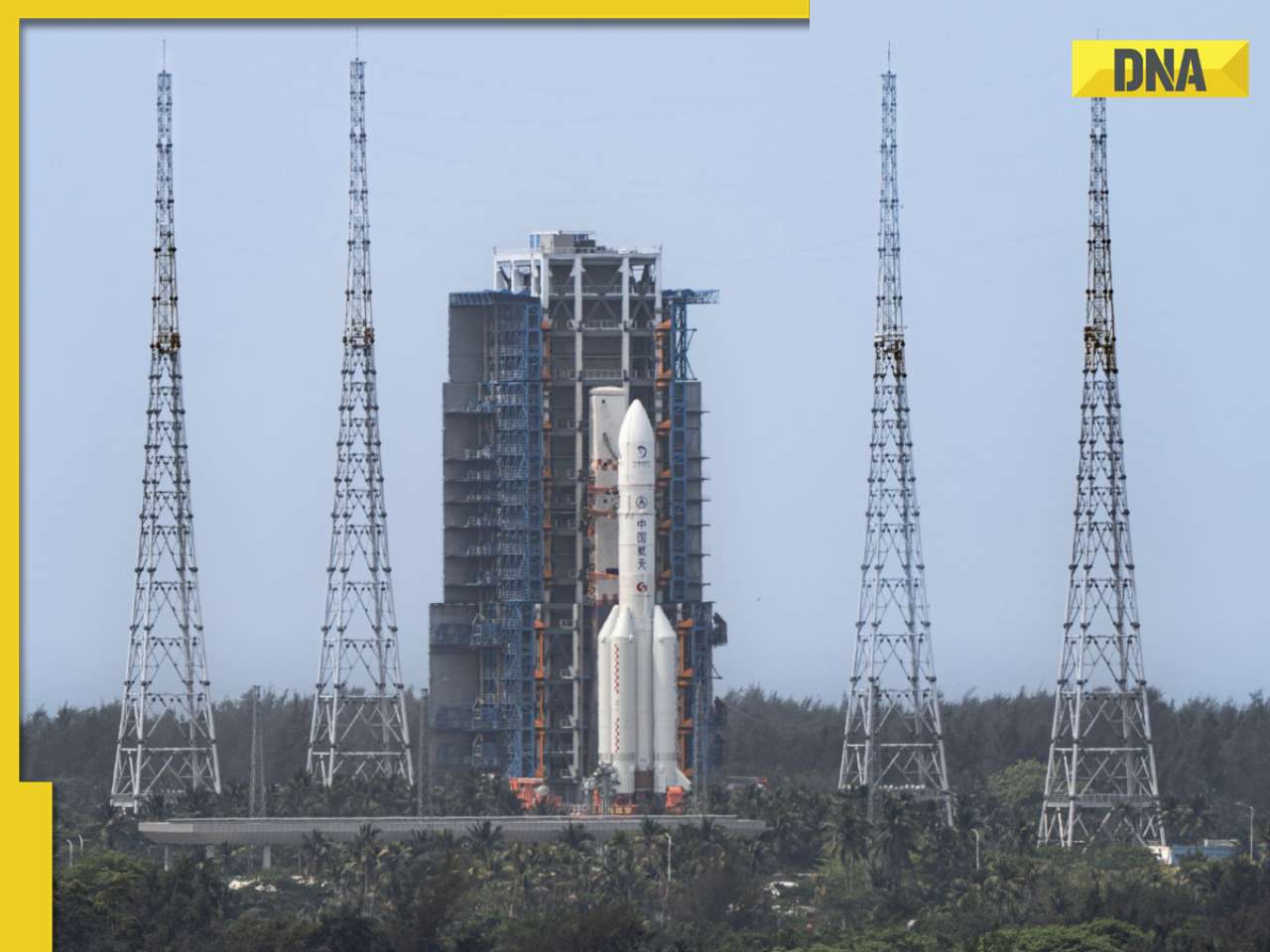























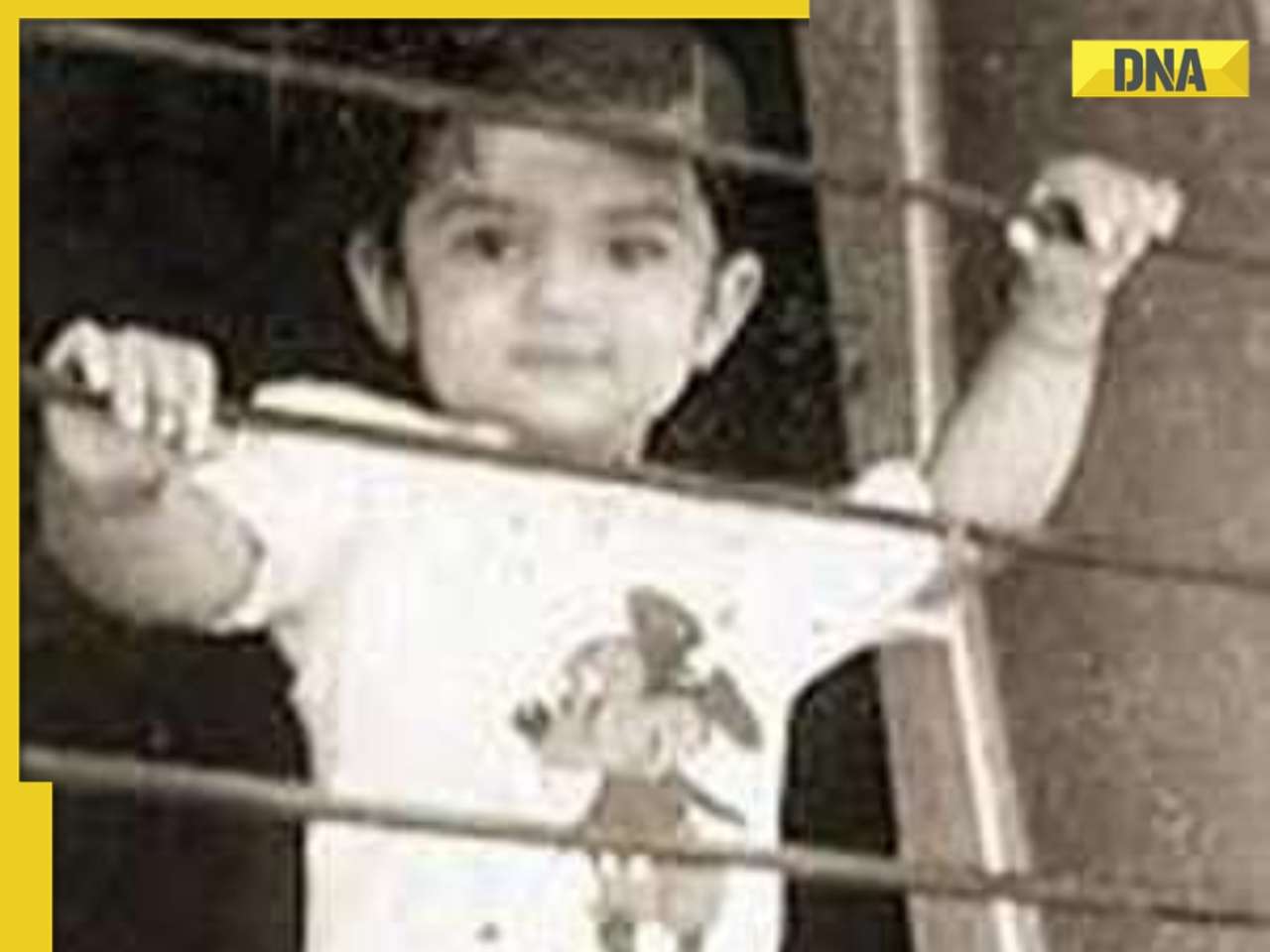
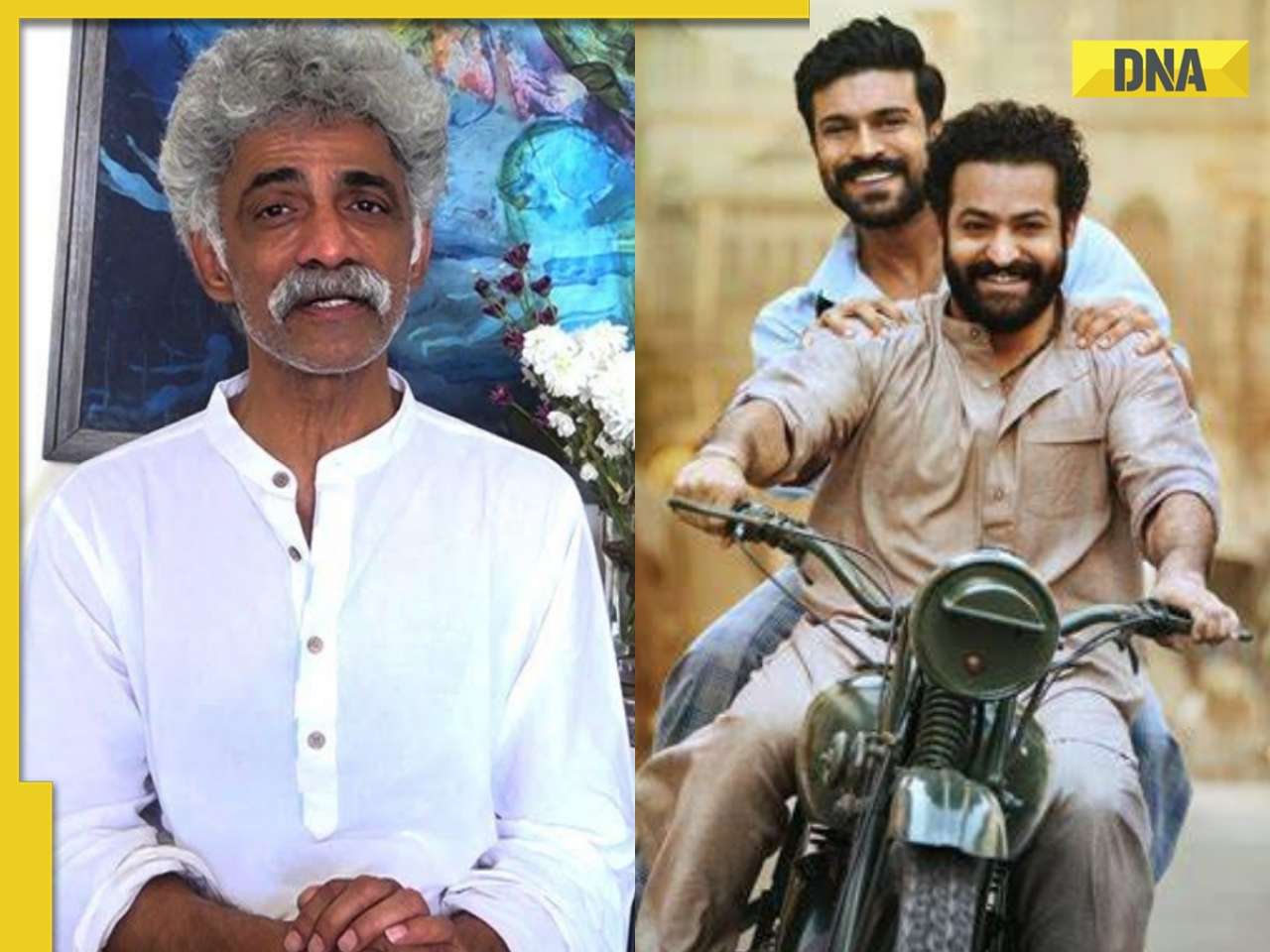

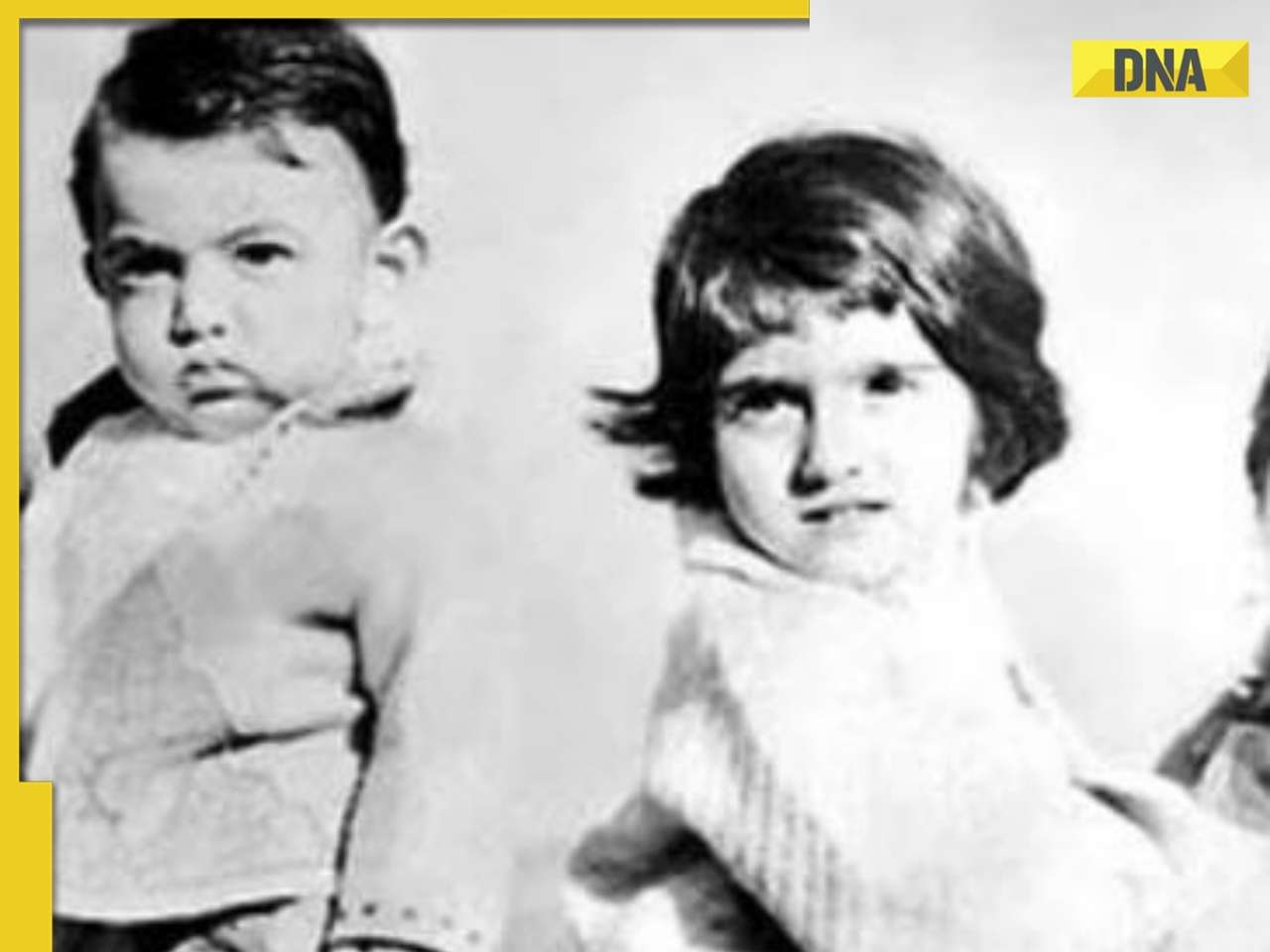
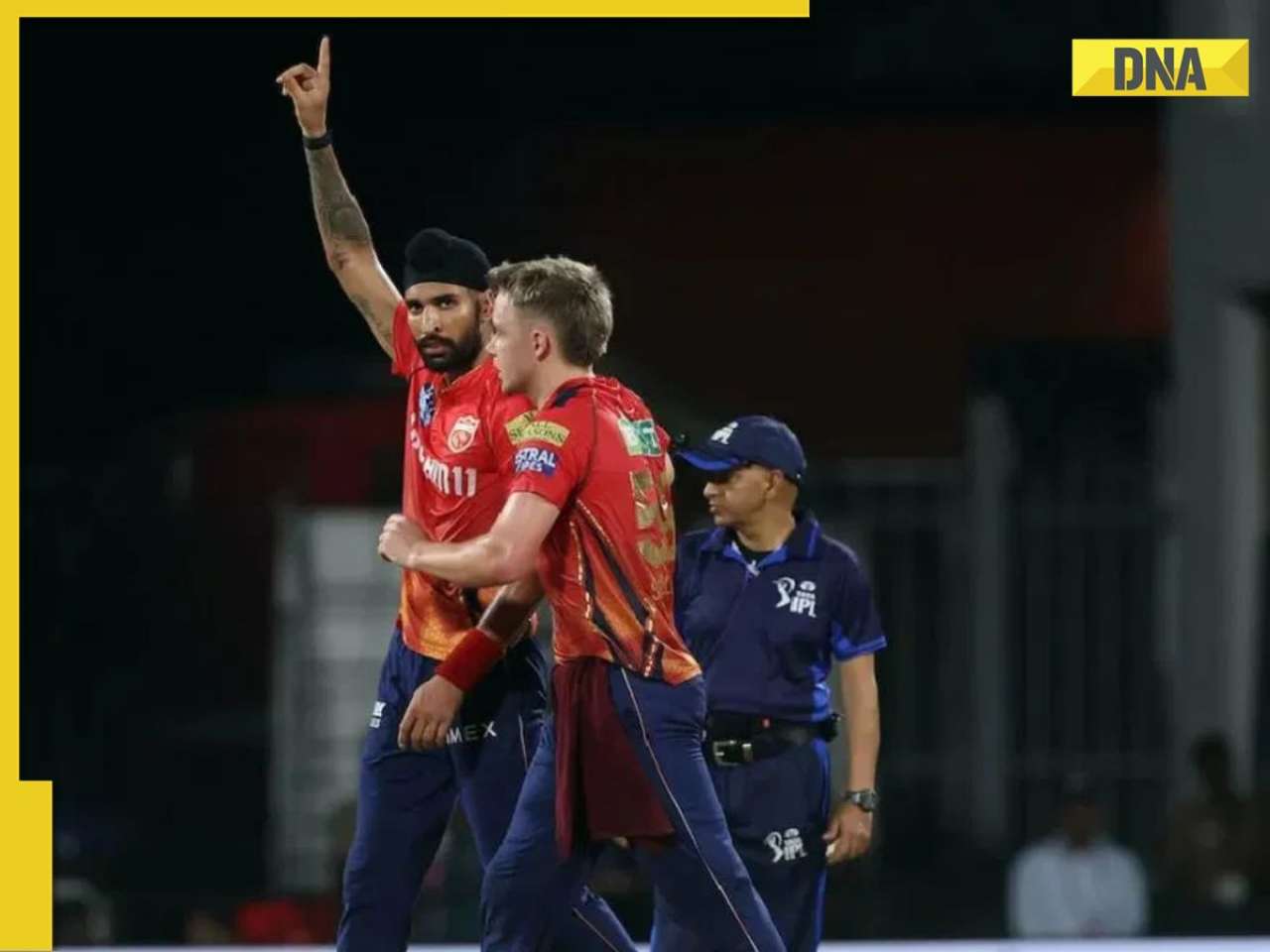
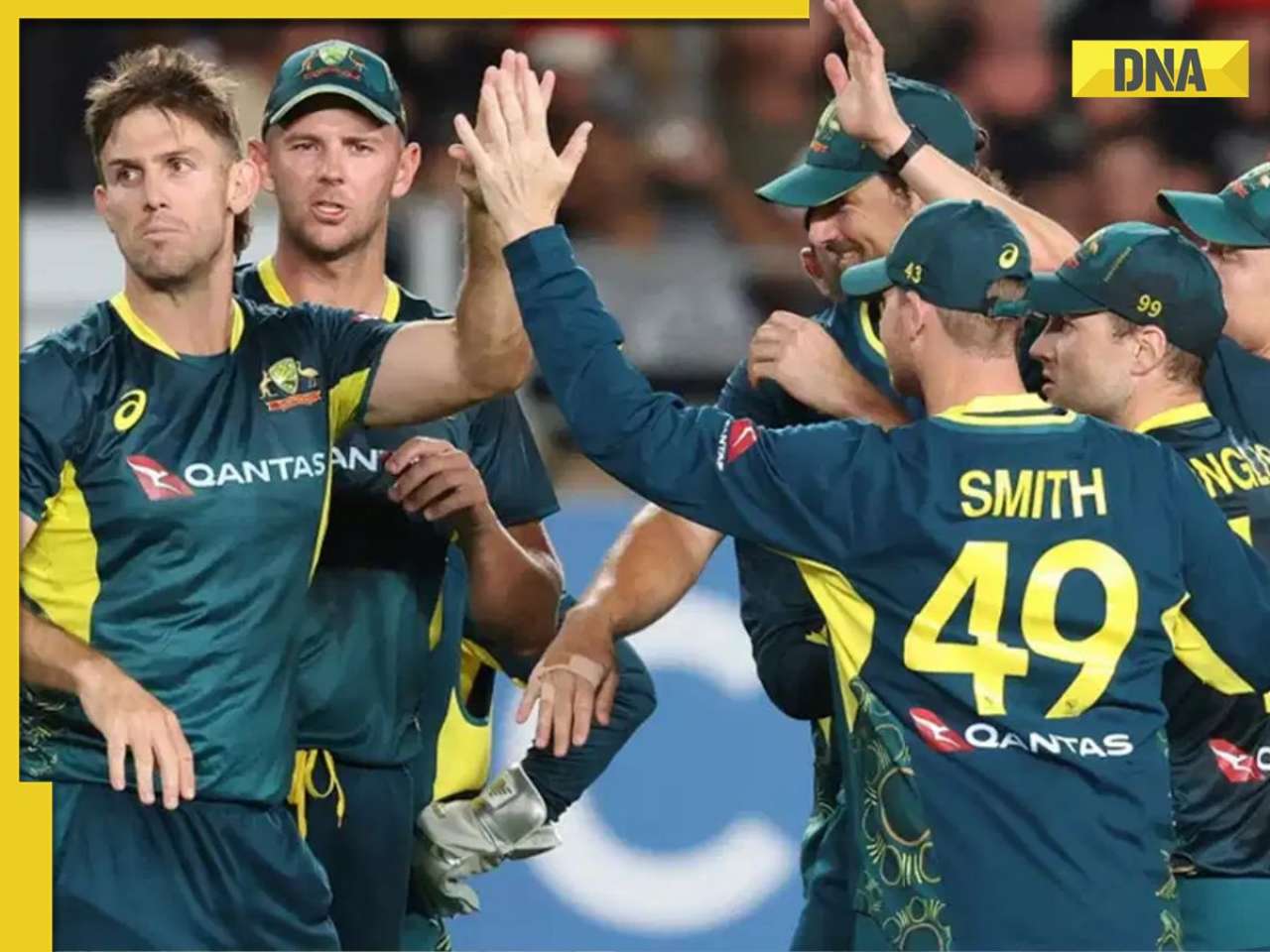
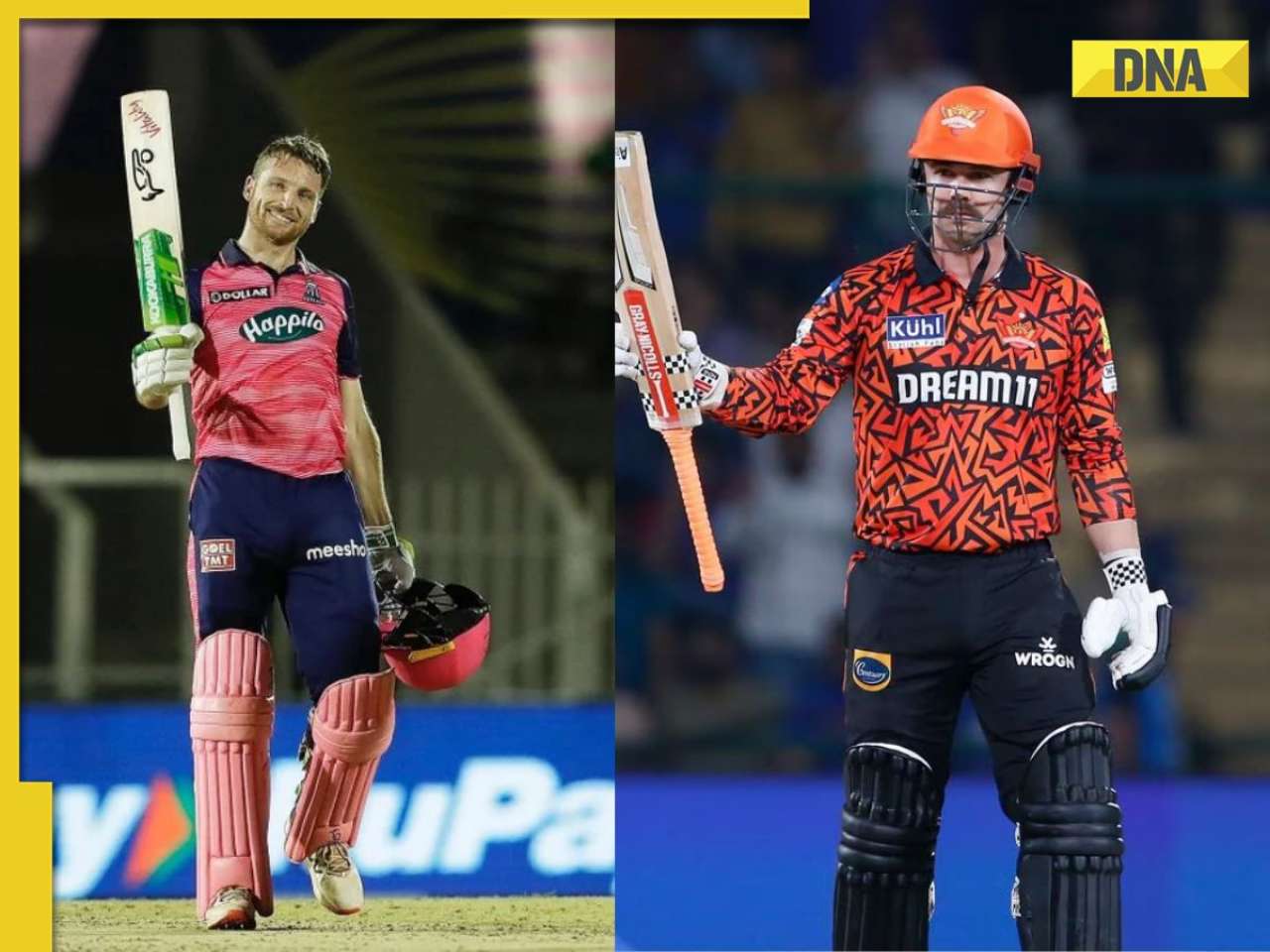
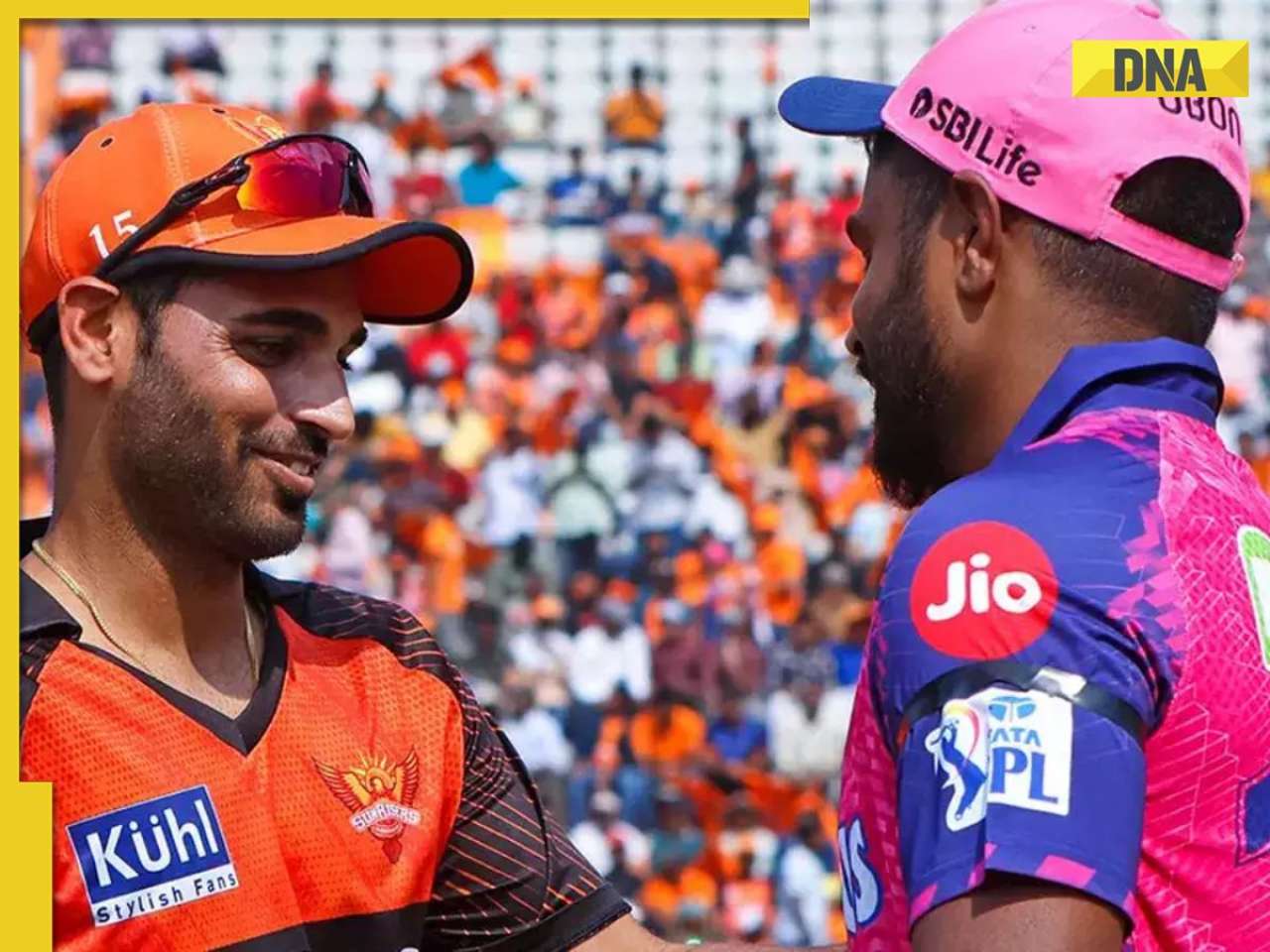



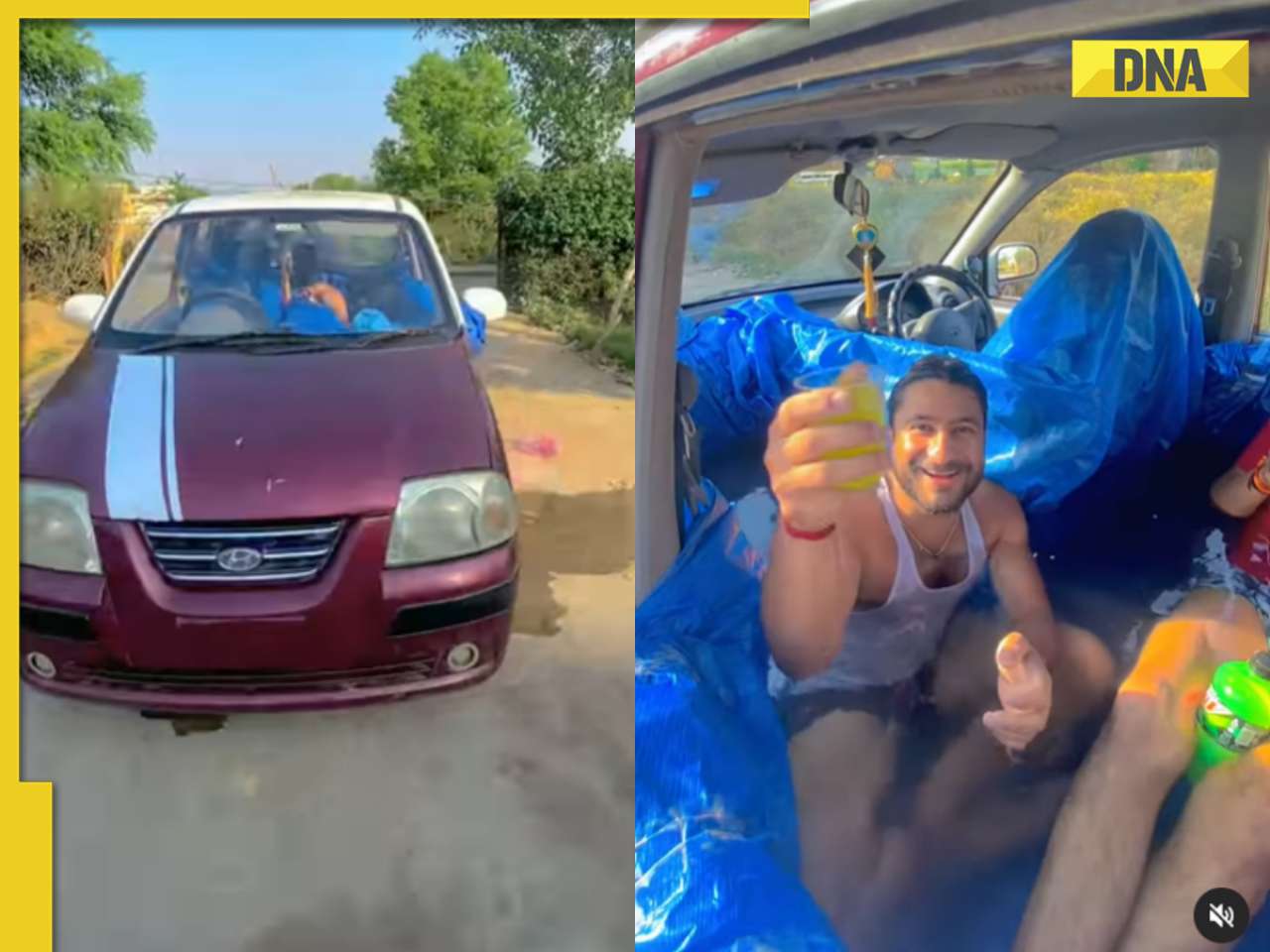



)




)
)
)
)
)
)